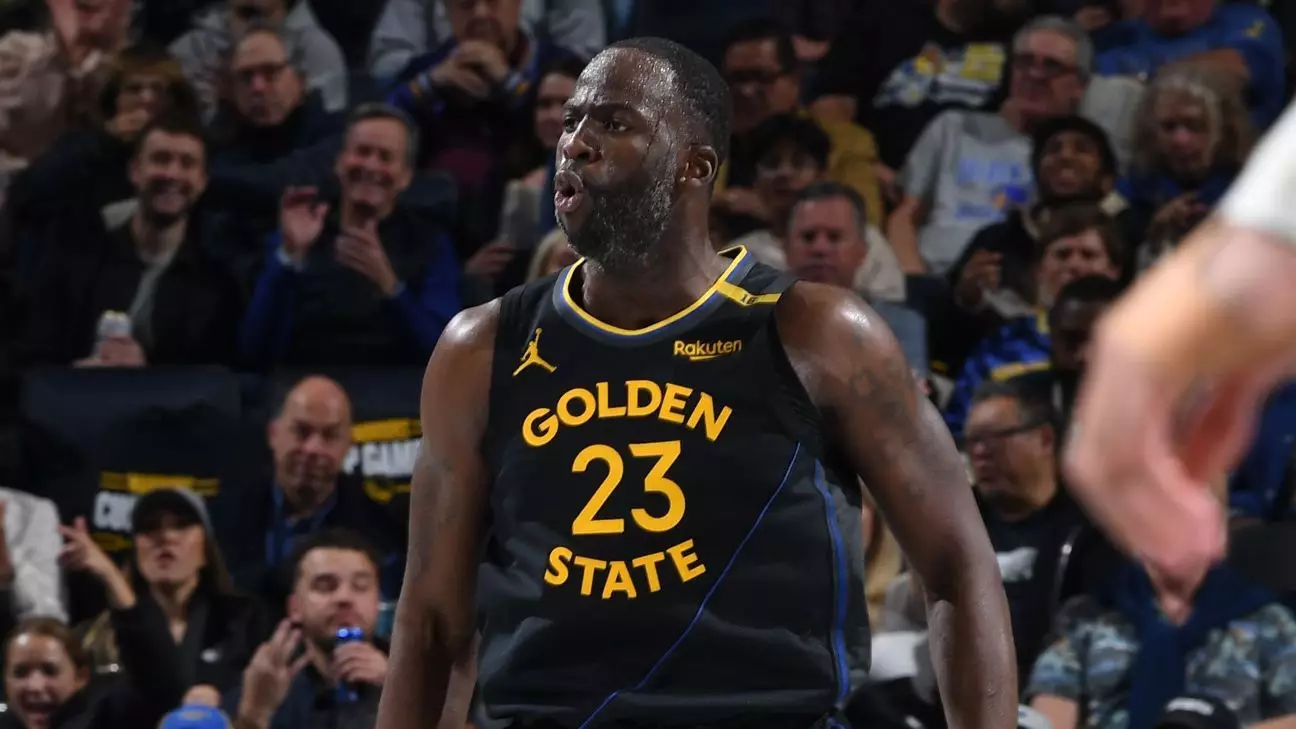In the high-stakes world of the NBA, interpersonal relationships can often become as intense as the game itself. Golden State Warriors forward Draymond Green’s recent public apology to former teammate Jordan Poole offers a glimpse into the complexities of camaraderie, conflict, and the road to personal growth. This incident, which occurred two years ago, not only impacted the players involved but also rippled through the entire Warriors organization, prompting reflection on accountability and the effects of emotional turbulence within a team environment.
The Incident That Shook a Franchise
The infamous altercation between Green and Poole in October 2022 stands as a stark reminder of how quickly situations can escalate in professional sports. What began as a verbal dispute during a preseason practice culminated in Green delivering a punch that left Poole visibly shaken. The fallout was significant; while Green issued apologies to Poole and his family, the incident raised questions about team dynamics during a critical period following their championship victory the previous season.
Far from being merely a physical confrontation, this incident illuminated deeper issues, such as the pressures athletes face and how toxic behavior can manifest under stress. Although Green was fined and temporarily distanced from the team, he remarkably avoided league punishment—an anomaly that speaks volumes about the gravity and complexity of such confrontations in the league. The emotional wounds from that day lingered long after, leading to Poole’s eventual trade to the Washington Wizards, a move that reflected the Warriors’ attempt to mend their fractured locker room.
Fast forward to now—Draymond Green has publicly expressed his remorse for his actions. Responding to Poole’s affectionate remarks about his time with the Warriors, Green tweeted an apology, emphasizing the need to move forward. “I really am sorry,” he admitted, underscoring the emotional burden carried by both parties since the altercation.
Yet, as Green navigates the fine line between accountability and self-defense, he acknowledges that his reaction was a natural response to provocation. “I kind of go back and forth with this,” he admitted, hinting at the internal conflict many experience during emotionally charged moments. His assertion that both parties share some culpability raises interesting questions about professional boundaries and the responsibilities athletes hold toward each other in high-pressure environments.
Adding layers to this narrative, Green’s journey toward self-improvement following various controversies has been a focal point of his personal evolution. After facing suspensions for his aggressive behaviors later that season, he took it upon himself to seek help through counseling and conversations with league officials. This proactive approach has led Green to describe himself as a “different” player and person, showcasing substantial commitment to self-reflection and change.
The introduction of therapists and sports psychologists into his life illustrates an increasingly essential conversation around mental health in professional sports. Green’s candid acknowledgment of needing assistance is a powerful statement, shining a light on the often-overlooked aspect of emotional well-being among athletes who face immense public scrutiny.
As the current NBA season progresses, Green’s behavior has shown signs of improvement, evidenced by fewer on-court incidents of aggression compared to prior seasons. This reduction speaks volumes about his growth journey, as he openly accepts responsibility for past mistakes: “They’re my fault. I needed to be better, and I failed.” Such statements reflect a maturity that resonates with fans and fellow players alike, creating a more understanding environment around him as he continues to grow through the sport.
Ultimately, the journey doesn’t simply end with apologies and public accountability. Green’s insistence on embodying a model of resilience—where failure does not define one’s identity—holds a lesson for all. The ability to learn from past mistakes while striving to better oneself is a universal principle, vital not only in sports but in life.
As Green recovers from recent injuries and reflects on the past incident with Poole, he serves as a reminder that the road to redemption is long but necessary. In the world of professional sports, what matters is not just the victories or trophies but the relationships built and the growth achieved along the way.


Leave a Reply